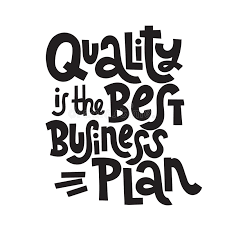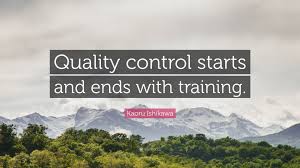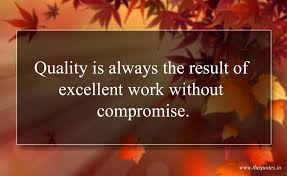Recent Negotiation Examples
As a working, professional voice talent, one of the aspects of my job that I dread is negotiating rates with clients. When I think about “living the dream” part of the dream of pursuing my passion for voiceover as a talent, coach, and demo producer does not involve the back-and-forth banter to iron out a rate before a job begins. Yet, this banter is becoming more and more necessary as the days of jobs with desirable rates simply arriving in my in-box seem to be fewer that past years.
 Let me share two experiences that happened in the past week. Last week, I heard from an Indie Video Game producer that I worked with in 2016. They were offering me the same role I played then. I had detailed notes in my CRM that they needed a discount as they were trying to launch the game with a kickstarter campaign. When I quoted them this time a normal, mid-range rate, they came back to me saying they were shocked that my rated had gone up. They went on to say that the five other talents had agreed to the rate they offered and they wanted to pay everyone the same. I referred them to the GVAA rate guide, which I will discuss later, and reminded them of the terms of 2016. They came up to my rate for me and for the other talents.
Let me share two experiences that happened in the past week. Last week, I heard from an Indie Video Game producer that I worked with in 2016. They were offering me the same role I played then. I had detailed notes in my CRM that they needed a discount as they were trying to launch the game with a kickstarter campaign. When I quoted them this time a normal, mid-range rate, they came back to me saying they were shocked that my rated had gone up. They went on to say that the five other talents had agreed to the rate they offered and they wanted to pay everyone the same. I referred them to the GVAA rate guide, which I will discuss later, and reminded them of the terms of 2016. They came up to my rate for me and for the other talents.
On Friday at the end of the day I client I have done quite a few TV campaigns for sent me two scripts. The rate for both was pathetic for one. It was clear he wanted a buy out, meaning he expects usage in perpetuity, which is never good for voice actors. I responded saying that I’d love to help but that the rate won’t work. I sent some suggestions their way, and said that we need to find a rate that is fare for both of us. My hope is that tomorrow we can work something out and that I don’t have to walk away from a long time client. I cannot, though, work for the rate offered. Maintaining industry standard rates matters for multiple reasons, not just for you as a solopreneur working to make living, but for the some total of our industry as a whole.
If We all Accept Lower Rates, Will Only Get Lower Rates
 Imagine a scenario where we all just stopped negotiating. Let’s say a client offers $200 for two TV commercials with no mention of the length of usage, and instead of trying to negotiate, sort out the details, and explain why buy outs don’t work for us, we all just said “sure.” The implications would be staggering. The clients, then, would assume there is nothing wrong with this sweat shop pay, and would assume that our years of coaching and on-going professional development, that our expensive studio equipment, that the service we provide, that none of it has value, and that the can continue to lower and lower the rates. Where will it end? How low will they go? I shudder at the thought, and fear that if we are not willing to walk away, these bargain basement rates will become more and more common. You must know your worth and be willing to stand up for it.
Imagine a scenario where we all just stopped negotiating. Let’s say a client offers $200 for two TV commercials with no mention of the length of usage, and instead of trying to negotiate, sort out the details, and explain why buy outs don’t work for us, we all just said “sure.” The implications would be staggering. The clients, then, would assume there is nothing wrong with this sweat shop pay, and would assume that our years of coaching and on-going professional development, that our expensive studio equipment, that the service we provide, that none of it has value, and that the can continue to lower and lower the rates. Where will it end? How low will they go? I shudder at the thought, and fear that if we are not willing to walk away, these bargain basement rates will become more and more common. You must know your worth and be willing to stand up for it.
Sometimes Client’s Genuinely Don’t Know and Need to Be Educated
As hard as this is to believe, sometimes clients are not actually trying to drive rates down. Sometimes they genuinely have no idea where the rates should be set and it is up to us to educate them. I have had this conversation with many other voice talents, and this is often the case. Often those casting us have never worked with voice actors before. Perhaps they were tasked with hiring a voice actor by someone else, and they know nothing about it. It’s possible, especially in eLearning, that they come from Human Resources or Academia and they know little to nothing about casting. When this is the case, a conversation about rates becomes a wonderful opportunity instead of frustrating and contentions.
Imagine How much Less You would Make If you Took the bottom Number on Every Job
Think about your financial goals for the month. Then think about your financial goals for the year. Then think about that over a three year period. Imagine, then, what would happen if you made 10% less on each job? Worse, what if you made 30% less on each job? It’s not just about having money to live off of and pay bills, at such a large income reduction, it will also effect your ability to save for the future and for your retirement. As solopreneurs, every booking we get matters in and of itself and in terms of building our client base. Each booking also matters for the industry as a whole. We all impact each other’s earning potential.
Where can you find Guides for Industry Standard Rates
If you are looking for sources or rates guides, let me refer you to three:
- The GVAA Rates Guide is extremely thorough and covers most of what you need: https://globalvoiceacademy.com/gvaa-rate-guide-2/
- The Gravy for The Brain Rates Guide is very specific, allows you to search by genre and usage, and is also great for EU and UK clients:
- The SAG rate guide cal also be extremely helpful: https://www.sagaftra.org/contracts-industry-resources/voiceover
Think About the End Goal: Earning a Consistent, Sustainable Income
In the end, we all want to earn a consistent, sustainable income. I remember hearing Bill DeWees, one of my first mentor’s in voice over, talk about this back in 2015. Yes! That what I needed, consistency. But a consistent income doesn’t just fall into your lap, it requires a rigorous blend of hard work and a willingness to negotiate. If you can’t stand up for what you’re worth, you’ll never get it.
 Each session got my wheels turning for different reasons, but during Armin’s session that was around 11 AM EST, when he spoke of defining quality in the industry. My head was bursting with ideas. If you don’t know Armin Hierstetter, he is the founder and CEO of the online casting platform Bodalgo. Unlike some platforms where you can simply sign up, Bodalgo stands apart because Armin has a screening process to begin with, setting a bar for “quality” from the start. In his talk, Armin spent a bit of time talking about what is going on industry wide in terms of quality, what quality looks like, and how quality could be achieved.
Each session got my wheels turning for different reasons, but during Armin’s session that was around 11 AM EST, when he spoke of defining quality in the industry. My head was bursting with ideas. If you don’t know Armin Hierstetter, he is the founder and CEO of the online casting platform Bodalgo. Unlike some platforms where you can simply sign up, Bodalgo stands apart because Armin has a screening process to begin with, setting a bar for “quality” from the start. In his talk, Armin spent a bit of time talking about what is going on industry wide in terms of quality, what quality looks like, and how quality could be achieved. It is imperative that in order to be competitive in the voice over industry today a talent must have coaches and continue to work on their craft. When I started I did a combination of one on one coaching in specific genres, online classes, acting and improv. Whether or not you are working towards a demo, a good coach will help you develop your strengths and identify your weaknesses. They will also help you identify next steps and encourage you with other genres of voice over that would likely be a good fit. As MaryLynn mentioned in her blog post,
It is imperative that in order to be competitive in the voice over industry today a talent must have coaches and continue to work on their craft. When I started I did a combination of one on one coaching in specific genres, online classes, acting and improv. Whether or not you are working towards a demo, a good coach will help you develop your strengths and identify your weaknesses. They will also help you identify next steps and encourage you with other genres of voice over that would likely be a good fit. As MaryLynn mentioned in her blog post,  If you want to succeed in voiceover, there are not short cuts to creating quality work. There is an industry standard and the bar is high. That is what books. If you are aware of those of us who continue to book at this time, the answer to what sets them apart is one word: quality.
If you want to succeed in voiceover, there are not short cuts to creating quality work. There is an industry standard and the bar is high. That is what books. If you are aware of those of us who continue to book at this time, the answer to what sets them apart is one word: quality.
 It should not come to that. On the two way street, if we provide the audio, we should be paid, regardless of whether or not it ultimately makes its way to where it is supposed to, that is not part of our deal. We record. We deliver. We are an absolute delight to work with. That makes a voiceover talent a good client. The rest is up to our client to do right by us, and most of the time they do:)
It should not come to that. On the two way street, if we provide the audio, we should be paid, regardless of whether or not it ultimately makes its way to where it is supposed to, that is not part of our deal. We record. We deliver. We are an absolute delight to work with. That makes a voiceover talent a good client. The rest is up to our client to do right by us, and most of the time they do:)

